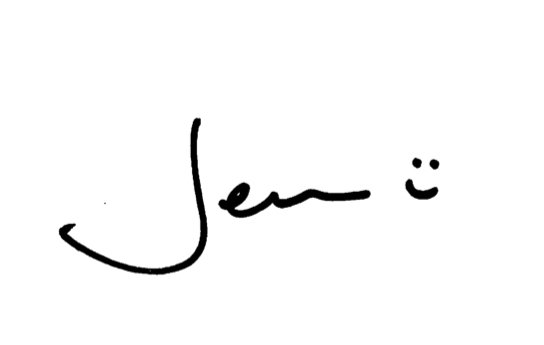Last week I attended a workshop in the CBD on Workplace Culture called “Walking the Talk”. I was there as a member of the professional body organizing the event, and arrived to join a very gender-balanced audience of fellow managers, leaders and business owners. Tick.

The purpose of the workshop was to launch the new member value proposition for the audience, which included (amongst other areas of focus) a stream called “Diversity Matters”. Tick.
In his opening remarks, the Chief Executive confirmed this is an organisation that values diversity. They have a big event planned for International Women’s Day, he said. Tick.
Then he introduced and began moderating the three-person panel comprising – you guessed it – three men. Educated men and enlightened men, no doubt. But now there’s four men at the front of the room, eagerly taking their turn to share their leadership insights. Not a woman to be heard.
I probably don’t need to tell you how I felt about this. Because chances are you’ve been there too, at a conference or panel discussion with no gender balance. It feels, well, awkward.
And it’s not just the gender imbalance that struck me here; but rather the inconsistency of words and action (ie “walking the talk”) between the stated value proposition only minutes earlier, and what we were witnessing now.
So where was the diversity? During question time I had to ask: In the context of the CEO’s stated commitment to diversity, why there were no women out the front of the room sharing their leadership insights and experiences? Had none of the panel members heard about The Panel Pledge? Did the event organisers even consider the audience would notice? And object?
Turns out – as you might expect – other women and men within the audience were thinking exactly the same thing. They shared as much with their spontaneous applause, “hear hear’s”, and with me personally after the panel had concluded, and by reaching out to me via LinkedIn after the event.
AND… of course the event organisers were embarrassed and apologetic. They had tried unsuccessfully to include a woman on the forum, they said. It wasn’t intentional, they assured me. There was a last minute cancellation, they explained. For what it’s worth, I believe them.
I’ve experienced first hand how challenging it can be to find women prepared to stand up, speak out and share their story. In another life, I ran professional development conferences – twelve full-day conferences a year and several smaller ones in between – with a speaker line up comprising more than 50% women. That was the criteria. No ifs or buts.
I too have experienced the same challenge. So I know how hard it can be. But also how attainable it is.
It’s 2016 now and – more than ever – the community expects that professional forums will be gender balanced. That’s because women comprise 51% of the Australian population and 45% of the employed population. So women have earned a voice at the table.
So yes, it will be noticed whenever there is an all male panel lineup (checkout the twitter hashtag #allmalepanel if you don’t believe me).
And honestly – in my experience – with a little bit of planning it needn’t be difficult to find a chorus of fantastic female speakers.
Doctors, lawyers, CEOs, Chairs, startups, farmers, community leaders, entrepreneurs, techs, engineers and business leaders. Amazing women are out there, everywhere! I found them and so I know there is really no excuse, in this day and age, for failing to tap into leading women at any forum, in any industry, in any location across Australia.
But it’s like finding anything worthwhile in life: you need to know where to look.
If you’re organizing an event – be it a special event like International Women’s Day or a conference, industry forum or even a community fundraiser – and you find yourself drawing a blank on how to find great women speakers, please think again before you settle for an #allmalepanel. It won’t go down well.
And in case you need a hand, like the organisers at last week’s event, I thought it might be helpful to make a braindump of everything I learned about finding fantastic female speakers. Maybe it will help with planning your next forum. I’ve tried to make it as practical as possible, in an editable Microsoft Word format, with 40+ links to get you started, and yet still short and sweet.
You can download the report here.
And by all means, please share it with anyone else keen to tap into to high calibre women, women’s networks and associations and communities of female influencers.
In a nutshell, these are the steps that helped me secure over 100 female speakers, all amazing, all gracious, all very willing to share their insights:
- Your little black book. And if you don’t have a great network of professional women, I explain how you can build one.
- Your own backyard. How to find the hidden gems in your business or member-based organisation.
- Your customers. The women on your client list that have a story to tell.
- Your suppliers. Same as above. But these ones want your business, so they’re usually only too happy to help 🙂
- Your community. Tapping in to female speakers from the schools, sporting clubs, gym, church, arts, environmental or other special interest groups that we are part of.
- The headlines. How to approach women you’ve seen in the media.
- Charities you support. The not-for-profit sector is brimming with talented women, who will usually be grateful for the opportunity to promote their charity. Links are provided to several NFPs with female CEOs.
- Women’s groups. There are a stack of networks set up to support women in their career endeavours, across the full range of industries, sectors. Links are provided to 11 networks that should be able to recommend female speakers from their member base.
- Women’s networks in specific industries and professions. Same as above. Get along to member events in your area of interest and introduce yourself to the women in the room. Links are provided to 12 networks.
- Professional memberships. These are not gender specific, but I have found them to be the best source of high caliber women in particular fields of work I was targeting. Links are provided to 6 associations I’ve worked with in the past.
- Social media. LinkedIn and Twitter are the go to places for professional networking. Links are provided for you to access to my 10,000 followers.
- Call in the hired guns. Speakers Bureaus can help you find women who are professional speakers, experts and celebrities in their chosen fields. Links are provided to 5 that I’ve worked with.
- Speakers groups. These are professional associations of speakers and experts that often have a member’s directory or can put you in touch with women speakers in the area of expertise you speak.
- Reach out. If you really can’t find anyone, and you feel you’ve tried everything on this list, then by all means contact me. I’ll be happy to make introductions and recommendations from my network across Australia and around the world.
Here’s that link again if you’d like to download the full report.
Helpful? Have I missed something? I’d love to receive your feedback on this, and know whether you found it useful.
Best wishes,






Leave a Reply